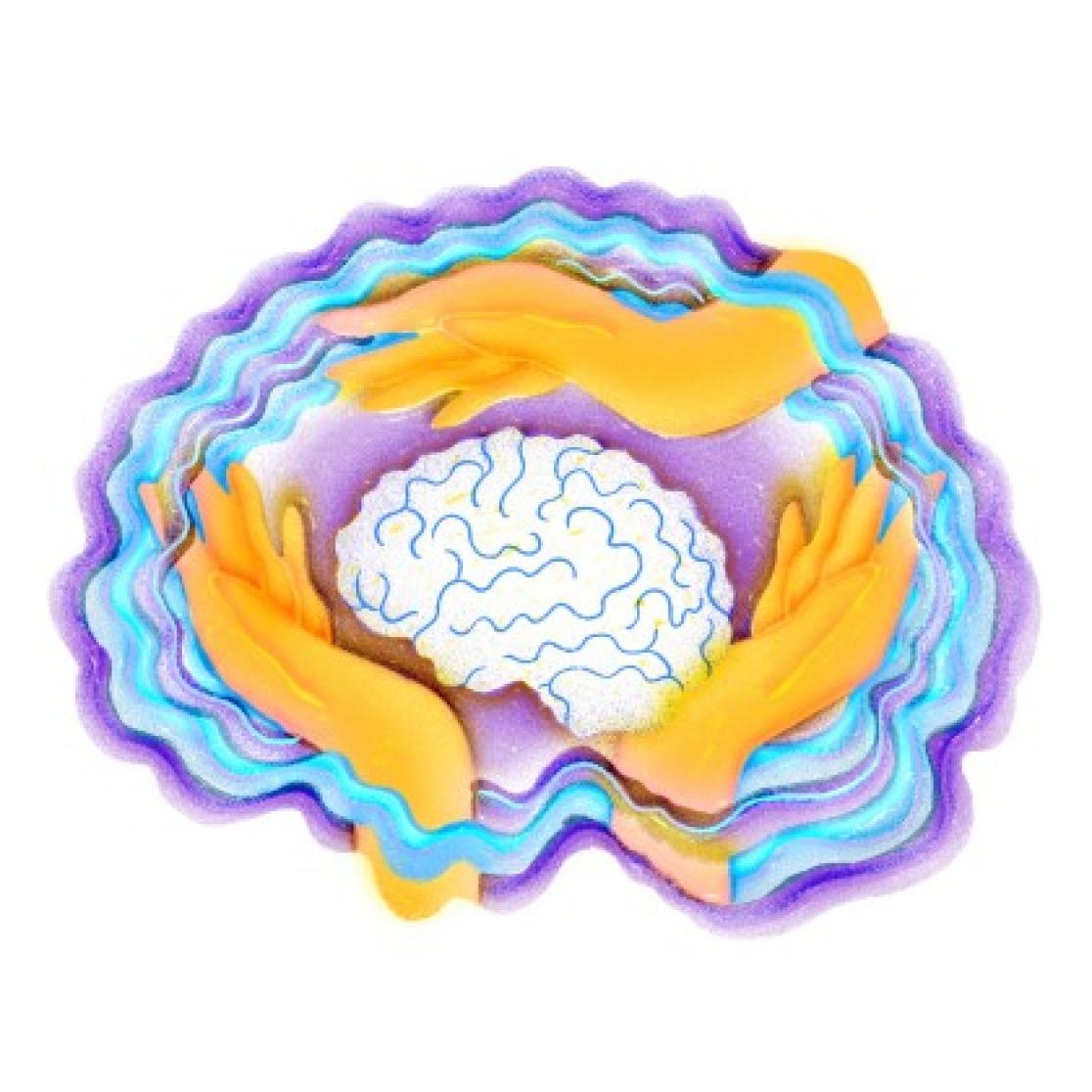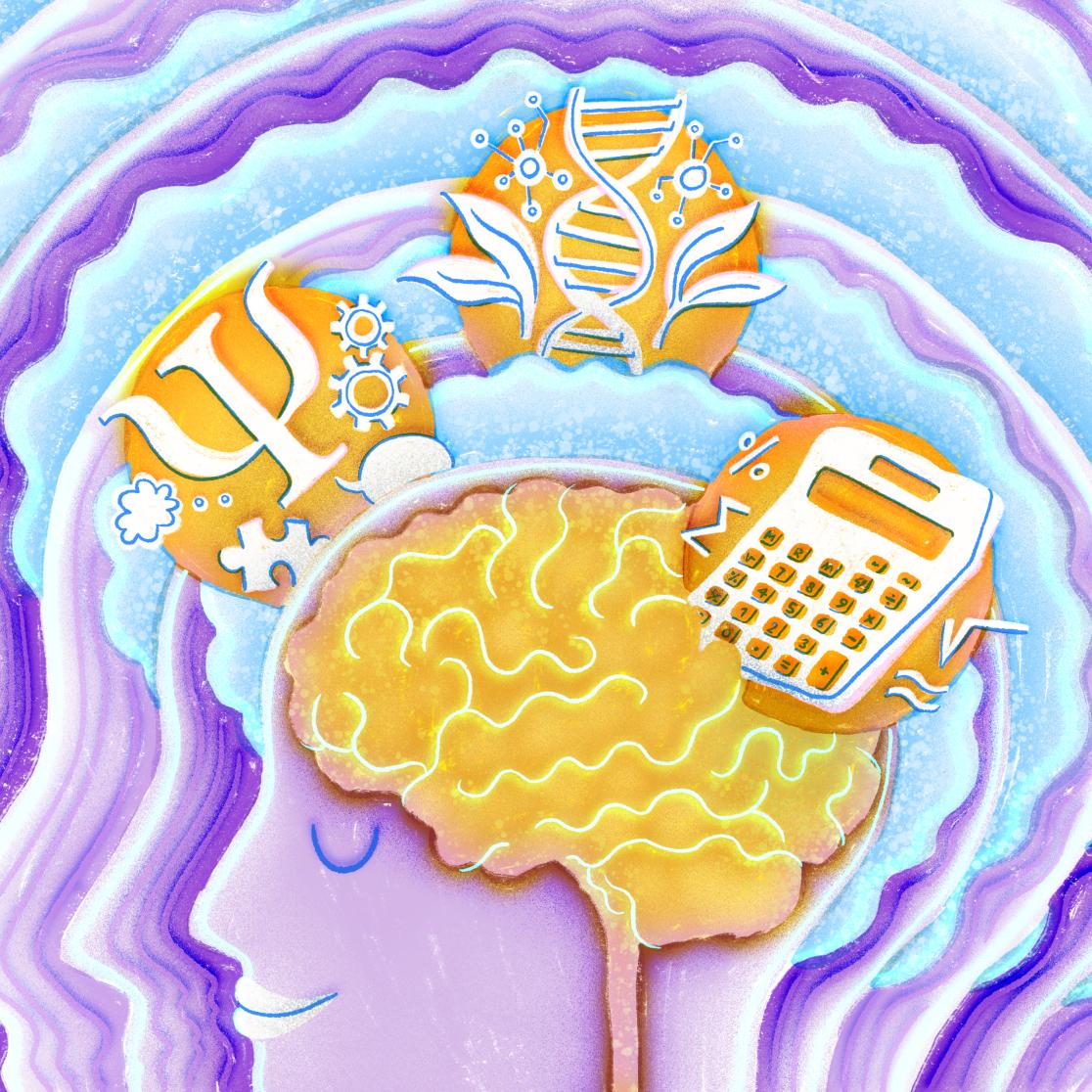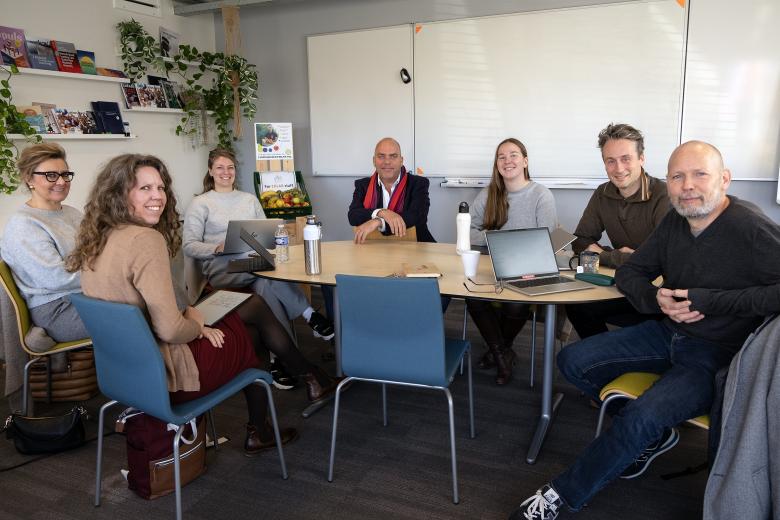A holistic Bachelor in Brain Science
Brain Science – this is the name of the new bachelor’s programme that kicked off in September at the Faculty of Psychology and Neuroscience. The programme was established in conjunction with two other faculties – Health, Medicine & Life Sciences and Science & Engineering – to integrate psychology, biology and mathematics in the study of the brain. “We have to look beyond the boundaries of individual disciplines,” says programme leader Peter De Weerd. “This is the only way to continue making progress in understanding our brains.”
One in four people will be confronted with a brain disease at some point in their lives. These include Parkinson’s and Alzheimer’s, but many problems with vision and hearing can also be traced back to the brain. To develop more effective treatments, scientists are trying to better understand how the brain works. In the new bachelor’s programme, students gain a holistic perspective by combining different scientific disciplines. A game changer?
“Not overnight,” Peter De Weerd says after a moment, “but we’re convinced that transdisciplinarity – bringing together different disciplines – provides important new insights. Research on brain function falls into roughly three domains: various biological disciplines, psychology paired with cognitive neuroscience, and computational sciences. The Bachelor in Brain Science connects these domains. Our students will become the bridge builders between the specialists. Consider the design of an app for digital healthcare, the development of gene therapy or the application of brain stimulation. To gain genuine insight into the human brain, let alone to develop treatments, you need psychology, biology, mathematics, AI and technology. In other words, a holistic approach that also pays attention to ethics. That calls for a different approach to training. In Maastricht, we want to create a generation of scientists who take a broader view.”
Major challenges
The idea for the bachelor’s had been on hold at FPN for about 15 years, De Weerd says. “Our outgoing dean Harald Merckelbach asked me to work up a proposal in September 2020. The first proposal was rejected by the education ministry’s review committee. The programme was considered socially and scientifically relevant, but there were doubts about the employment prospects. Later, a broad survey of institutions and companies showed a great need for both the hard and soft skills that we offer, and for people who look beyond boundaries and work in teams, as students learn in Problem-Based Learning at UM.”

Perfect place
De Weerd trained as a clinical psychologist and obtained his PhD at KU Leuven in 1991. He then spent 12 years in the US, studying neural mechanisms of visual perception and attention alongside world-renowned neuroscientists such as Leslie Ungerleider and Robert Desimone. This experience gave him plenty of options when he returned to Europe. He swiftly opted for FPN in Maastricht.
“This young faculty really appealed to me. I felt a cooperative spirit between people from different backgrounds and nationalities. It seemed like the perfect place to do research together with fun people. And it also turned out to be the perfect place to set up the new bachelor’s programme in Brain Science, which is something I couldn’t have foreseen. The opportunity to take things in a new direction, together with young people – how great is that? And to develop that new path with a superstar team of colleagues from three faculties… It’s been a great experience.”
“There is a great need for both the hard and soft skills that we offer students of Brain Science.”
Peter De Weerd
Exceeding expectations
In the end, both the review committee and the Accreditation Organisation of the Netherlands and Flanders gave the programme a green light. By late 2023, a draft curriculum was ready; De Weerd emphasises the essential role played by his fellow programme leaders, Gunter Kenis (FHML) and Nico Roos (FSE), and by Heidi Prevoo (senior policy adviser for education at FPN). They quickly received an unexpectedly high number of applicants. “We’re only allowed to do minimal advertising, and only within the Benelux. We held a single open day, but were completely overwhelmed by the amount of interest. At the start of August we had 135 suitable candidates, over 60 of whom have definitively enrolled. More than half are from the Netherlands, along with a mix of foreign students. A large majority are women, too, which is interesting for a STEM programme.”
Follow-up study and the labour market
De Weerd has no immediate explanation for this. “The fact that Brain Science touches on possible treatments in addition to fundamental science may particularly appeal to women. But most importantly, it’s an excellent programme for everyone, with many opportunities for further study in various disciplines. Of course, we’d like to see some of our students stick around and join us in taking further steps in brain research. But above all, we hope our alumni will head out into the world to make a difference in many places and in many jobs. There are plenty of challenging positions for our graduates on the job market.”
Brain Science
De Weerd is curious about the impact of ‘his’ bachelor’s degree. “It’s a great source of satisfaction, knowing that a new generation of young people, with a new perspective, will be helping to solve the social and scientific challenges of our time within just a few years. It’s quite possible that I’ll indirectly contribute more to brain science this way than through my own research.”
Text: Jos Cortenraad
Illustrations: Veronique de Jong

Also read
-
Teacher Information Points at UM
UM faculties now host Teacher Information Points (TIPs) that offer local, “just-in-time” and on-demand support for teaching staff. The aim is simple: to provide help that is closely connected to day-to-day teaching practice.

-
Vidi grants for UM research on AI models and our brains
Two Maastricht University (UM) scientists will receive a €850,000 Vidi grant for their research projects. This was announced by the Dutch Research Council (NWO) on Thursday. Researcher Laure Wynants (CAPHRI/ FHML) will work with her team on more reliable AI models for healthcare. And neuroscientist...

-
MaCSBio involved in two research proposals granted by NWO Complexity
These questions will be answered in four consortia that have been awarded a NWO-Complexity grant. MaCSBio is involved in two of these consortia and will carry out research regarding complex systems in the field of health and nutrition.
